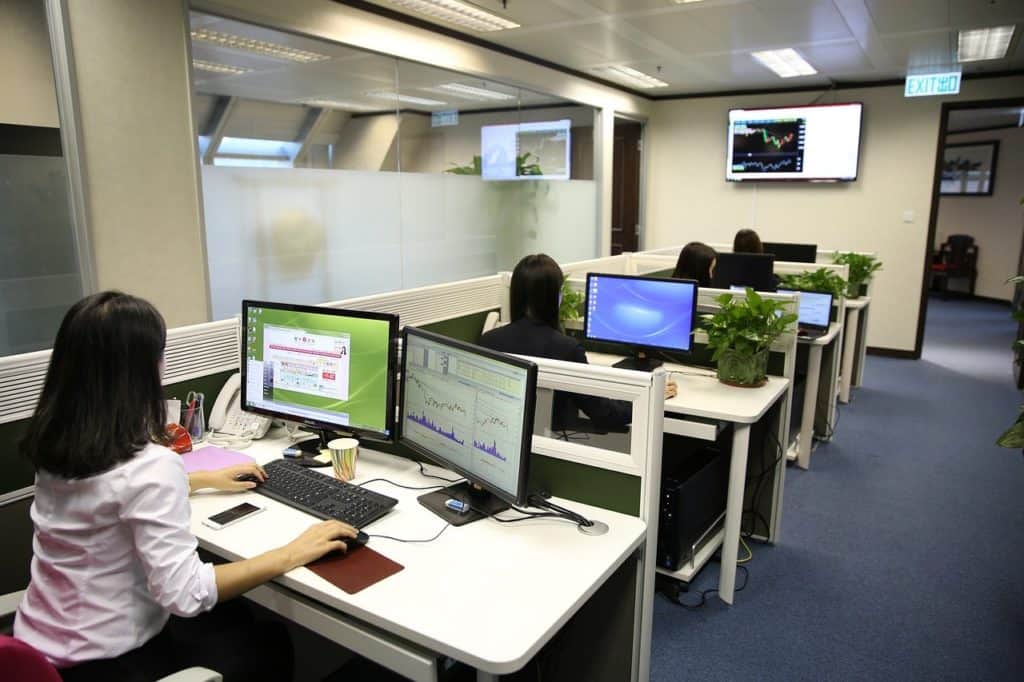Regarded by some insurance brokers, entrepreneurs and managers as the be-all and end-all of running a business, productivity can mean different things and be measured in a series of ways.
The most common one is the amount of work done in a measure of time, but even that can be stretched out as “work” could be understood as many things.
How does one measure the productivity of an artist, or an engineer? Completed pictures and solved equations per hour?
With insurance agents and agencies, we know performance is measured by the number of policies sold but productivity could be measured by hours worked, phone calls made, emails sent, text messages sent, the number of client meetings completed, etc…
We can discuss this topic as a philosophical question back and forth but still not solve the question of how to increase productivity in the traditional sense. As this problem was being fought with for centuries several ways have been developed on how to do it.
Corporal punishment used to be one of the favorites but today we know better and can actually make people work harder and better without inflicting any physical pain.
So let’s see what six ways there are for better workplace productivity.
Table of Contents
Setting Goals
Defining very specific goals is a must if you want your workplace to be efficient. There are several approaches to this topic and it will depend upon what kind of operation you have. If working from project to project, for example, it is best to divide the whole current project into several categories and define deadlines for every single one.
Those working separate parts will then dedicate more time to their details and getting it done, unlike worrying about the grand picture which is a job for the management.
The other scenario is if there is a steady production with little or no oscillations during the year. Increasing productivity is a bit harder in this case but the old-fashioned way is to set the annual production output to be a percent, or something similar, higher than last year. In this way, productivity can increase slowly, without having to force it over a short period of time.
Communication is Key
Work time loss due to miscommunication, although a stupid reason, is still a reality. From not enough operators on the customer service lines to faulty phones and mailing systems in the office building – the reasons behind such lost time are many.
One of the more irritating things that cause this is ill management by network operators.
One of the solutions to this problem is managing your network yourself. And Inbound Call Routing can be used to great lengths to mitigate this problem – you have the option of call control, using apps to easily manage inbound numbers, it’s budget-friendly and adaptable. Anything larger than a very small company has to place great emphasis on its inner and outer communication performance, as clients today expect very reliable and quick information, but so does any company to function properly.
Teamwork Makes the Dreamwork
The benefits of team working have always been emphasized and a number of examples are to be found in manufacturing. One of the benefits of adopting teams was to increase productivity but until recently there was not much research done on the topic, especially in the service sector. However, now we have studies showing exact numbers and how we can use these strategies to our advantage.
Teams are best divided as mostly autonomous units, with each team being able to perform their tasks independently but can still be grouped together on larger projects if more hands are needed. Then, when such teams work together for some time you will be able to make a ranking among them and assign more difficult or urgent tasks to teams that are able to do it accordingly.
But care must be taken that the teams do not become too independent because they will inevitably not be able to work with the rest of the company as efficiently when need be.
Punishing and Rewarding Employees
For some, getting their monthly paycheck is reward enough for the time and effort they put in. But considering the slow rise in the average income, we cannot expect employees to put in more effort if not given more motivation solely on those grounds. That is why a system of rewarding and punishing must be developed to improve or correct work habits in the workplace.
Studies show that not every approach is equally effective. In general, positive feedback, that is to say – a reward of some kind, is more effective than negative feedback and should be used whenever good behavior needs to be continued or increased. A very obvious example is handing out bonuses to workers who increased their productivity or finished before a deadline. Punishments are only useful to deter people from doing something specific, such as giving out confidential company information.
Keeping Track of Statistics
As a Baruch College professor once said: “Statistics are like a bikini. What they reveal is interesting. But what they hide is vital.”
However amusing, this quote tells us about the significance of collecting and correctly analyzing statistics. Collecting data may seem like a very boring and mundane job, but every experienced economist and entrepreneur will nevertheless always draw conclusions and develop future strategies based on what their interpretation shows.
A very simple example is following what your accountant reports at the end of every month, be it a net profit from following leads, loss, or some other parameter, and see how it changes depending on what you are doing in the workplace.
Although not directly a way to improve productivity, it is the surest way of seeing if anything does manage to improve it.
Developing Standards
Management system standards help companies stay organized and productive under various circumstances. Small companies may rely only on “a boss” to have proper people and management skills, but medium and large companies need to professionalize and properly define how the hierarchy and organizational scheme of the company have to look like.
Even though employees may be working to their fullest capacity, productivity may be stagnant as the management keeps failing to come to an agreement because of a clash in a hierarchy or a dead-end in giving reports and orders.
In the modern free-market economy, there is always a need for increased productivity. Inflation and the rising middle class in Asian countries will inevitably lead to more demand for goods and services across the world, and to keep up with it we must not be content with the current state of affairs but strive for a better, and more efficient work environment for all of us involved.’
When it comes to the insurance industry, there are many inefficiencies in both the policy buying process and claims process. So, insurance brokers who follow these tips to get more productivity out of their workforce of insurance agents are sure to gain efficiencies in their business and increase the number of insurance policies sold.









